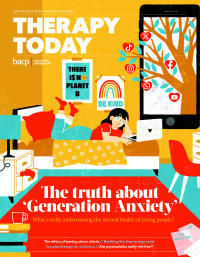Research bites
This issue’s papers focus on recent research in counselling and psychotherapy with bereaved parents
Mentalizing a traumatic loss
This case study aimed to explore whether bereaved parents’ capacity to mentalize is related to their progression through grieving and how it changes during couples therapy. Mentalization, or reflective functioning, is the general mental capacity to reason about the internal mental processes of the self and others. Through the use of standardised measures and thematic analysis of therapy session transcripts, it was found that the ability of parents to mentalize surrounding their child’s death increased as therapy progressed. Couples therapy helped parents to look for meaning in their relationship with the deceased child, including through their relationships with other loved ones.
Read more: Janusz B et al. Mentalizing in parents after traumatic loss: analysis of couple counseling.
Review of child loss support
Review of child loss support This systematic review of 21 papers explored the effectiveness of bereavement support interventions for parents who have experienced losing a child, with a particular focus on meaning-centred psychotherapy approaches. The results identified the use of six main types of intervention, including: using support figures, contextual and existential models, objects and materials, applied online interventions, family support programmes, and a couple-based intervention. The significant differences in the designs of these interventions highlighted the lack of established child loss bereavement support treatment for parents and the need for more homogeneity within interventions.
Read more: Pelacho-Rios L, Bernabe-Valero G. The loss of a child, bereavement and the search for meaning: a systematic review of the most recent parental interventions.
Interventions for perinatal grief
This systematic review explored the effectiveness of CBT and mindfulness-based interventions for perinatal grief (PG) and aimed to identify which intervention was most effective in managing symptoms of complicated PG, including depression, anxiety and post traumatic stress. Following a systematic search, eight eligible studies were identified, involving a total of 681 bereaved parents. The findings indicate that both interventions result in reductions of PG symptoms. However, due to the diversity of methods and outcomes and the limited literature in this area, the authors concluded that a true comparison between the two interventions on complicated PG symptoms could not be established. They argue that further randomised controlled trials with larger sample sizes as well as more in-depth qualitative investigations are needed.
Read more: Dolan N et al. Are mindfulness-based interventions as effective as cognitive behavioral therapy in reducing symptoms of complicated perinatal grief? A systematic review.
In the spotlight
'Black men would like to engage more in therapy but therapy does not engage them'
Mary Atito is an integrative psychological therapist with a special interest in spirituality, identity and transcultural approaches to mental health and the impact of trauma. She is currently pursuing a PhD alongside working in private practice and is a board member of the Society for Psychotherapy Research (UK chapter). She aims to encourage black British students to pursue higher education and all therapists to become research practitioners, researching phenomena within their communities.
Can you tell us a bit about your research?
My research explores black British men’s perceptions of therapy through the subjective experience of 10 black British men across two focus groups. I used a constructivist grounded theory approach to construct a theory, embedded in an Afrocentric framework, out of a shared cultural and historical experience of people of African descent.
What motivated you to undertake this research?
Growing up in south London, it was evident that the black community’s engagement in therapy was infrequent despite entrenched psychological and emotional trauma. I found myself feeling concerned about the wellbeing of the black community, particularly men, as their engagement in therapy was even more infrequent, while they are over-represented in psychiatric services. I felt impelled to explore and attempt to address this.
What do you hope your research can bring?
The findings so far suggest that black men would like to engage more in therapy but therapy does not engage them. The research sheds light on factors that may support them to consider and engage in therapy, providing practitioners with a framework to utilise. I’m hoping that my research will bring understanding to psychotherapeutic services about the experiences of the black community through the voices of black men, and allow psychotherapeutic policy, theory and practice to be considered through an Afrocentric lens, to adequately meet the psychological needs of black men.

